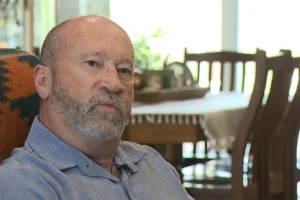A recent article by The Washington Post sheds light on Haiti’s worsening crisis, set against the backdrop of Donald Trump’s return to power and his historically negative stance on Haitians and migration from the island nation. The analysis explores how his presidency could reshape U.S.-Haiti relations, with significant implications for immigration policy, humanitarian aid, and international security.
Haiti’s Escalating Turmoil
The piece paints a bleak picture of Haiti’s current state, detailing a week marred by political upheaval and escalating violence. The ruling council ousted the prime minister it had appointed just seven months ago. Gangs have tightened their grip on the country, driving residents to flee the capital. The violence reached a new height when gunmen targeted commercial aircraft, forcing the closure of Haiti’s international airport for the second time this year.
Trump’s Legacy and Haitian Relations
The article revisits Trump’s history of derogatory remarks about Haitians, including false claims about Haitians eating family pets in Ohio and his vocal opposition to migration from the nation. During his first term, Trump’s policies and rhetoric reflected a lack of concern for Haiti’s well-being. Pierre Esperance, director of Haiti’s National Human Rights Defense Network, remarked, “He didn’t really care.”
Trump’s rhetoric raises fears of renewed mass deportations, which could further destabilize Haiti by overburdening its fragile infrastructure and cutting off remittances that make up approximately 20% of the country’s GDP.
International Security and Aid at Risk
The article also questions the future of U.S. support for a United Nations-backed, Kenya-led policing mission aimed at stabilizing Haiti. Analysts worry that Trump’s administration could drastically reduce funding, shifting the burden to other nations and leaving Haiti more vulnerable to gang violence and lawlessness.
Cabinet nominees like Sen. Marco Rubio, Trump’s proposed secretary of state, are expected to advocate for harsher immigration policies, rather than prioritizing increased intervention or support for Haiti’s recovery.
Uncertain Commitments
Trump spokesperson Karoline Leavitt claimed the president-elect would “restore peace through strength,” but offered no clarity on whether that strength would include supporting Haiti or its people. This lack of specificity leaves many questioning how U.S.-Haiti relations will evolve under the new administration.
As Haiti faces one of its most challenging periods, the potential impact of Trump’s presidency looms large, with analysts predicting intensified struggles for the nation in the absence of meaningful international support.






























